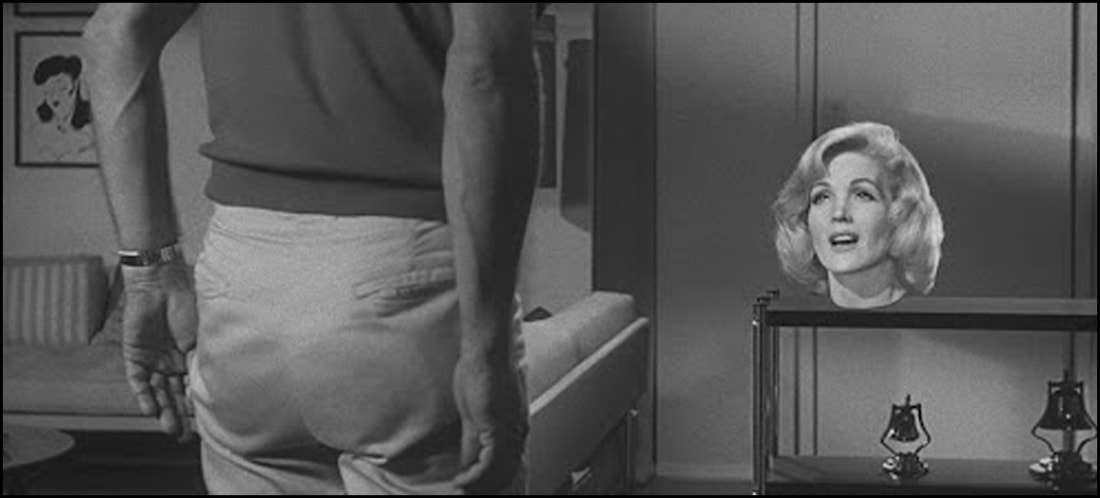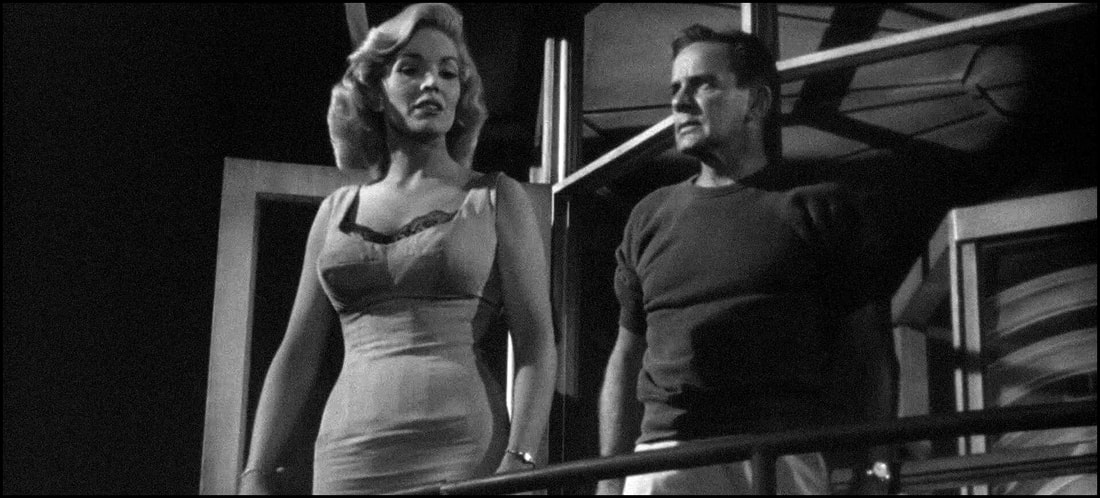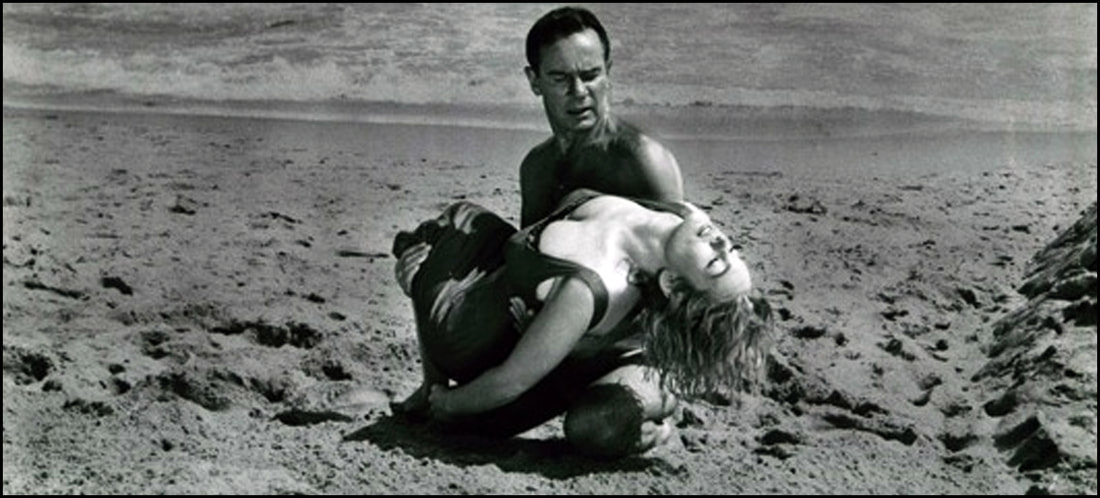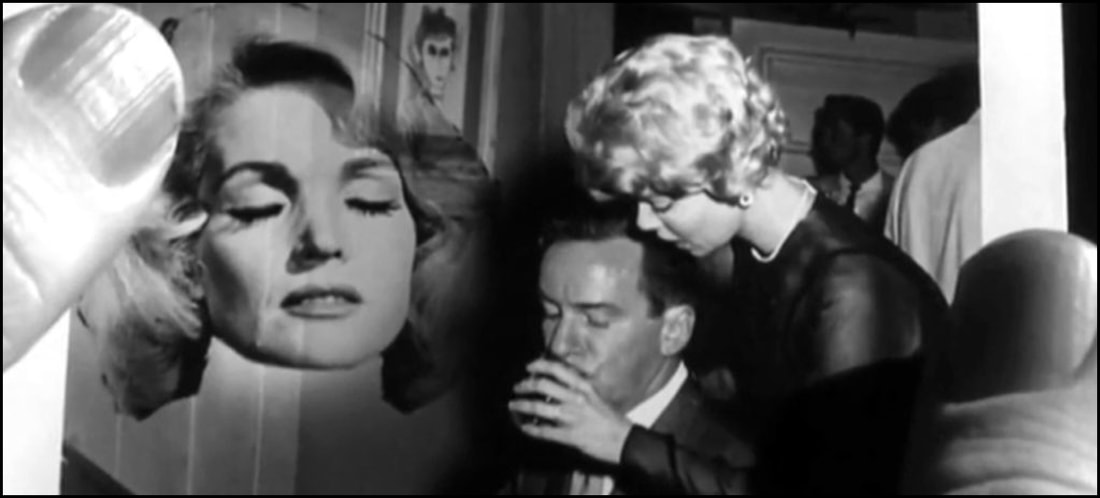First off, every release that I take on – large or small – is because I choose to do it. Yes, as some in the growing readership have pointed out, I gravitate toward older and/or smaller releases; and this is mostly because I’ve learned over the years that I simply have more fun tackling something fewer internet voices are even considering. When everyone is sounding off about the latest blockbuster that’s playing on a zillion screens, it ain’t always easy being heard; and it’s even easier to find yourself lost in the pursuit of clicks. Instead, I talk about film. I talk about stories. I talk about talent. Those things matter to me; and if smaller and older films aren’t getting the attention I feel they deserve, then I seek to fill that void.
Second, every release that I take on deserves to have something said about it. I don’t review anything simply for the sake of reviewing it; and I work with distributors, producers, and other outlets that genuinely appreciate both the modest promotion their projects receive as well as what I might have to say about it. This isn’t so much about sharing feedback as it is about feeling part of a process wherein a story and its talent get an authentic examination – a sum total of its parts – to confirm whether or not it speaks to me. I go to great lengths with some flicks to offer up my own perspective, and I hope the storytellers and their cast and crews can benefit from the reaction.
So … yes, this means that (cough cough) even the features of days gone by that have been understandably lampooned by the likes of Mystery Science Theater 3000 might say something about the world we live in or even offer up a cautionary lesson for those who still watch for those kinds of things. 1960’s Tormented is one such property – yes, it was given the MST3K treatment (brilliantly so) in 1992, and that episode is even included as an ‘extra’ on this release from Film Masters – and I can’t help but think some of what might’ve made the film compelling got brushed over in the attempt to lambast it. My setting the record straight isn’t meant in any way to undo any obvious blemishes; rather, it’s to demonstrate even a curious second rate production still has something of merit to offer.
(NOTE: The following review will contain minor spoilers necessary solely for the discussion of plot and/or characters. If you’re the type of reader who prefers a review entirely spoiler-free, then I’d encourage you to skip down to the last few paragraphs for the final assessment. If, however, you’re accepting of a few modest hints at ‘things to come,’ then read on …)
“A man lets a former flame fall to her death rather than let her interfere with his new relationship, but her ghost returns to disrupt his impending nuptials.”
Sporadically, I find myself in debates with like-minded folks about the nature of film criticism.
The explosion of the Information Superhighway has brought an incredible number of voices to pop culture, and a great number of them like to sound off on film. While I’m all in support of having more views as opposed to less, one significant drawback I experience when scrolling through any number of blogs and vlogs is that I find far too many of them saying the same thing … and, generally speaking, it would seem as if fandom loves to ‘pile on’ when they see a failure. Now, if everyone is saying the same thing, then (sadly) how much authentic criticism is taking place? Don’t get me wrong: a bad film is a bad film is a bad film … but my point has often been that even bad films might have something worth paying particular attention to … and such is the case with legendary filmmaker Bert I. Gordon’s Tormented.
Given the fact that this little yarn came to life right at the time that franchise like The Twilight Zone were first coming to prominence, I can’t help but point out how Tormented feels like it could’ve been a bloated episode in that universe. At 74 minutes, it arguably would’ve been too long for much of the Rod Serling venue; but both aesthetically and textually Tormented draws from the same well of inspiration, that being that our universe might be bigger, broader, and more complex that we could ever imagine at first blush. While the presentation of such ideas might be flawed here and there, it still feels very much like a product of that age.
Tom Stewart (played by Richard Carlson) is a jazz pianist who finds himself torn between two lovers: while Vi Mason (the voluptuous Juli Reding) embodies the kinda/sorta freewheeling and dangerous lifestyle he’s enjoyed as a part of the music industry, Meg (Lugene Sanders) is the kind of wholesome and well-bred debutante that just might give him the chance at stability and recognition he hasn’t found in his career. But like a good jazz tune might twist and morph into something other than intended, Vi isn’t willing to go quietly into the night; when she threatens to spoil Tom’s engagement by revealing his illicit affairs, the man realizes that he’s trapped with no way out. Before she can make good on the threats, she’s pledged to him that night on the lighthouse deck, Vi accidentally plunges to her death on the rocks below … even though Tom had the chance to save her and refused.
Yes: love conquers all … whether we like it or not!
IMDB.com indicates that director Gordon and George Worthing Yates collaborated on the script; and – in doing so – they actually got a great deal of mileage out of their shared ideas. With some clever yet dated effects work, we’re given indications that Tom is most definitely not alone. Footprints appear alongside his when he’s strolling along the beach with his wealthy fiancé in tow; before Meg can see them, the tide washes them conveniently away. Vi appears as a transparent shadow in several sequences, either calling out or threatening Tom from the ‘other side.’ Where the film does falter in significant ways is Gordon finds himself obsessing over ‘body horror,’ having just Vi’s hand show up in one spot or giving life to just her disembodied head in another. As special effects trickery, the techniques work … they’re just a bit half-baked in terms of what it textually represents at this point in time.
Still, Gordon was a bit of a master at getting the most out at minimum expense; and – whether you can stifle a laugh or not – Tormented works on several layers.
The auteur clearly put some time, effort, and thought (not a lot of money, though) into the construct, clearly giving audiences a look at Tom’s kinda/sorta tortured existence both personally and professionally. We’re given a glance behind the curtain – a life with Vi may’ve been sexually fulfilling whereas his potential future with Meg appears to be little more than a piano-playing fixture at some gala affair where she’s the center of attention – and it ain’t the tomorrow it’s all cracked up to be. By the second half, even extortion has entered in from a seedy afterlife, leaving our ‘hero’ with few alternatives and even a dire predicament suggesting he must murder Meg’s younger sister Sandy (Susan Gordon) if he’s ever to have a moment’s peace any longer.
Tormented (1960) was produced by Cheviot Productions. DVD distribution (for this particular release) has been coordinated by the fine folks at Film Masters. As for the technical specifications? While I’m no trained video expert, I found the sights-and-sounds to what’s been advertised as a new 4K restoration from 35mm archival elements to be very respectable; I’m betting any and all shortcomings are owed to issues with the source material, and – yes – there are a few bits and pieces underwhelming. Lastly, if you’re looking for special features, then buckle up! As well as this being an all-new restoration, you have waiting in store for your discovery:
- The aforementioned MST3K version of Tormented;
- A good but all-too-brief interview with director Gordon;
- A stellar documentary featuring C. Courtney Joyner examining the director’s career;
- A visual essay by the Flying Maciste Brothers discussing the film;
- 1961 footage from an unaired TV pilot that sought to use Tormented as an episode;
- Audio commentary from Gary Rhodes and Larry Blamire;
- Theatrical trailers; and
- A collector’s booklet featuring essays from Tom Weaver and John Wooley.
Recommended.
The films of Bert I. Gordon can be a mixed bag, but Tormented (1960) achieves exactly what it set out to do. It delivers an old-fashioned ghost story – one with a bit of deception and intrigue – and it even flirts with visual trickery in ways that served the story just good enough. Thematically, it’s very similar to what Rod Serling was doing – albeit on less of a budget – or perhaps even what M. Night Shyamalan is still doing together – albeit on a vastly greater budget. Yes, you might laugh at it a bit here and there; and, yes, MST3K lampooned this one for good measure. Yet, it still works … and that says something.
In the interests of fairness, I’m pleased to disclose that the fine folks at MVD Visual and Film Masters provided me with a complimentary Blu-ray of Tormented (1960) by request for the expressed purpose of completing this review. Their contribution to me in no way, shape, or form influenced my opinion of it.
-- EZ





 RSS Feed
RSS Feed